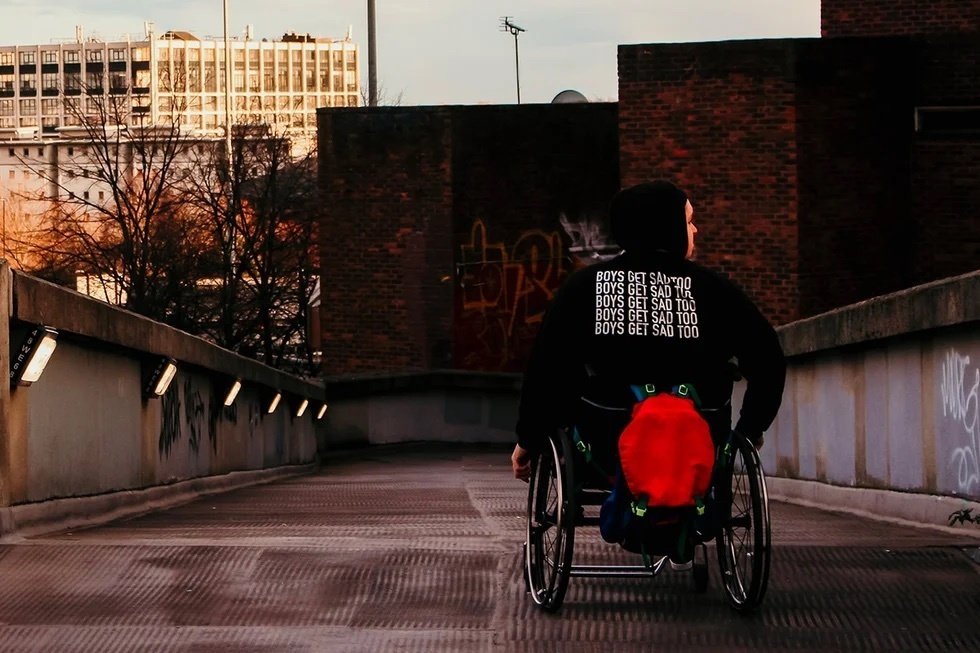How to ask about disability accommodations in an interview
24. 10. 2023
4 min.

In the US, people with disabilities are protected by law from employment discrimination; federally, by the Americans with Disabilities Act, and sometimes even more stringently at the state level. But what are your rights, really, and how can you go about getting the “reasonable accommodations” you’re legally entitled to? To find out, we spoke with Alex Hartzband, senior counsel at the Grubin Law Group, an employment law expert.
Your rights, explained
Legally speaking, “a disability is something that substantially interferes with one or more major life activities or one or more major bodily functions,” according to Hartzband. There’s no exhaustive list, but major life activities include things like sitting, eating, and concentrating, while major bodily functions include cognitive function, respiratory function, and reproductive function.
People with disabilities have the right to “reasonable accommodation” from their employer, or from a prospective employer. That is, some change to the work or interview environment that allows the employee to have equal opportunity in the job application process, perform essential job functions, and enjoy equal benefits of employment. Those accommodations can range from providing an ASL interpreter for a Deaf employee, to building an accessible ramp for a wheelchair user, to allowing flexible time off for an employee undergoing mental health treatment.
There’s no definitive list of either disabilities or accommodations, because each is evaluated on a case-by-case basis. Not every person with a given disability requires the same accommodations to do their job. Which, on the one hand, is great: the law insists that each individual’s needs be handled individually. But on the other hand, says Hartzband, “Whether you’re getting what you’re entitled to, whether your employer’s being fair about this, it’s a really tough thing to navigate without a lawyer because everything is so case-by-case and there are no definitive standards.”
How to get accommodations
That said, getting the accommodations you’re entitled to should not be an arduous process. Employees should disclose their disability to their employer and ask for accommodation (ideally in writing). Explains Hartzband, “It’s best to be clear and explicit. No one really is helped by beating around the bush. At the first instance, you want to make sure your employer knows exactly what you’re asking.” So, Hartzband advises, make sure you’re using words like “disability” and “reasonable accommodation.” And, he emphasizes, though this may feel like an awkward conversation where you’re asking for special treatment, “it’s not special treatment. It’s treatment that puts you on equal footing with the people who don’t have [your] disability.”
Cautions Hartzband, “Employees who suffer from mental health disabilities that require some type of accommodation are up against it a little bit, because I think there’s a tendency in a lot of workplaces to write those things off.” So if you’re trying to get accommodations for a mental health disability, it behooves you to be even more explicit with your disclosure and request.
Before you’re hired
People with disabilities are entitled to reasonable accommodations so that they can have equal opportunity in the job application process. So if you have a disability that requires something like assistive technology or an interpreter in order to do a test project or complete an interview, you should ask your first point of contact on the hiring team for that accommodation.
However, employees are under no obligation to disclose disabilities that may require accommodations down the line during the interview process. And since even the most well-meaning hiring managers are not immune to unconscious bias, says Hartzband, if you don’t need accommodations during the interview process, “you should secure yourself the job [before mentioning accommodations] because that’s the type of thing that could get in the way. And seeking redress for failure to hire is a hell of a lot more difficult than for wrongful termination.”
Can your employer say no?
Employers are not required to provide an accommodation when that would lead to “undue hardship.” Said Hartzband, that can mean that the accommodation is “really expensive, it could mean it disrupts the way that the business runs. It could mean that giving this accommodation makes it so the employee isn’t actually performing their central job functions.”
Another reason an employer might legally refuse to provide accommodation is the Bona Fide Occupational Qualification exception, or BFOQ. As an example, Hartzband explains, “If you’re a truck driver, in a tragic accident, [and] you lose both your arms. Having arms is a BFOQ for being a truck driver, so there’s no accommodation they can make for you that’s going to work.”
This should be simple
At the end of the day, reassures Hartzband, the process of requesting accommodations is a “formalized step-by-step thing on some level, but what it really is, is the law saying, ‘Hey, you’re two human beings. Have a conversation about this, and work something out.’” Assuming everyone is acting in good faith, requesting reasonable accommodations for a disability—both in the interview process and once you’ve landed the job—shouldn’t be much more difficult than the rest of your onboarding.
If you need help navigating an accommodations request—and an employment attorney isn’t in the budget—try the Job Accommodation Network, a free service from the US Department of Labor intended to help employees and employers navigate accommodations.
Key takeaways
- If you have a disability, your employer—or future employer—is required by law to provide you reasonable accommodations in order to give you an equal opportunity in the job application process, perform your essential job functions, and enjoy the privileges and benefits of being an employee.
- Requesting accommodations doesn’t have to be a difficult process, but it does require a disclosure of your disability and a request for accommodations. The more clear and explicit you can be, the better.
- Everything in this world is handled on a case-by-case basis. If you have questions about what you’re entitled to, speak with a lawyer or someone from the free Job Accommodation Network.
Photo: Welcome to the Jungle
Follow Welcome to the Jungle on Facebook, LinkedIn, and Instagram, and subscribe to our newsletter to get our latest articles every week!

Viac inšpirácie: Po pohovore

Young parents: How to negotiate benefits with a potential employer
While ‘more sleep’ may not be on the table, there are plenty of parental benefits you can ask for from a new employer.
20. 12. 2023

Accepting a job offer below your salary expectations: Is it a smart move?
After a grueling hiring process, you receive a sub-par offer. How do you handle it?
07. 11. 2023

Exiting gracefully: Navigating a withdrawal from the hiring process
Not a good fit? Salary below expectations? Got a better offer? There are plenty of reasons to pull out of the hiring process. Here’s how to do it.
18. 10. 2023

Job hunt: Here's what you can negotiate beyond salary
PTO, equity, health insurance, student loan repayment ... yes, please!
21. 9. 2023

Fur the win: Negotiating pet-friendly perks in your next job
Ready to fetch more than just a paycheck? Here's your guide to negotiating pet-friendly perks with your next employer.
21. 9. 2023
Novinky, ktoré to vyriešia
Chcete držať krok s najnovšími článkami? Dvakrát týždenne môžete do svojej poštovej schránky dostávať zaujímavé príbehy, ponuky na práce a ďalšie tipy.

Hľadáte svoju ďalšiu pracovnú príležitosť?
Viac ako 200 000 kandidátov našlo prácu s Welcome to the Jungle
Preskúmať pracovné miesta
